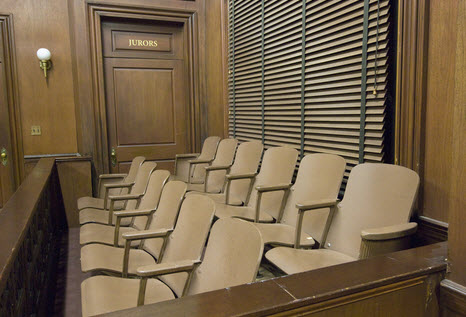A Guide To The Maryland Jury Selection Process For Civil Trials

When you bring a lawsuit against another party and it goes to court, it will likely be heard by a jury. Lawsuits go to civil court, as opposed to criminal court, where crimes are tried. In a civil case, the jury’s job is to objectively weigh the evidence and determine the liability and damages. The jurors effectively determine the outcome of the case, so selecting the right jurors is very important. While your lawyer cannot hand pick all six jurors, they can remove or challenge jurors whose biases would threaten their ability to objectively view and weigh the facts of the case. These removals and challenges are made through the process of voir dire. Every state has some form of voir dire, and unfortunately, Maryland has one of the most restrictive forms of voir dire, known as skeleton voir dire. This makes having an experienced lawyer who is familiar with the juror selection process and how to maximize the impact of their challenges all the more important.
Questioning the Jurors
When prospective jurors first arrive in the courtroom they will take an oath, swearing to answer all questions truthfully. They will then be asked questions in order to determine whether they have a personal interest in the outcome of the case, any knowledge of the case being tried, or any personal experiences or beliefs that would make it unlikely that they could remain impartial. These questions will be used as the basis for determining who will sit on the jury. Jurors whose answers create red flags for the judge or either lawyer can be challenged or removed.
Challenging Potential Jurors
There are two types of challenges in the voir dire process: challenges for cause and peremptory challenges. Challenges for cause are made by the judge. These are made if jurors answer questions indicating that they are related to or have a close relationship with one of the attorneys or parties involved in the dispute, have specific knowledge of the case, or another basis indicating that they would be unlikely to remain impartial.
Peremptory challenges can be made by either side for any or no reason. Each party gets a certain number of peremptory challenges that they can use to disqualify jurors. They do not have to provide their basis for using these challenges. However, an experienced trial lawyer will use these challenges to remove any jurors who pose a threat to their client receiving a fair trial. For instance, if one of the jurors is the daughter of and wife of a police officer and the case is a civil suit against the police department, your lawyer would likely use a peremptory challenge to have this juror removed. After all of the removals and challenges have been completed, the selected jurors and alternates will be selected from the remaining pool of qualified candidates.
Talk to a Maryland Personal Injury Attorney
If you have been injured in a Maryland accident that was not your fault, it can be daunting trying to determine how to start and considering the legal process involved in getting justice for your pain and suffering. Luckily, you don’t have to navigate this process alone. The experienced Maryland personal injury attorneys at Berman | Sobin | Gross LLP are ready to zealously advocate on your behalf at every stage of the process in order to ensure that you get the compensation and support that you are entitled to. Call today to schedule your free consultation.
Resource:
mdcourts.gov/sites/default/files/import/juryservice/pdfs/trialjuryservice.pdf
